2004 Narconon Europe History
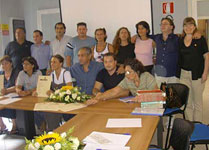
It was a very busy year for Narconon in Europe. Not only were there new Narconon drug rehabilitation centers opened, but many people came to Narconon training centers to learn how to deliver the correct Narconon program steps in their home towns. And of course, tens of thousands of young people were educated in the truth about the dangers of drug and alcohol abuse.
At the Narconon management office in Denmark, the training delivered to people coming from Narconon centers all over Europe increased eight-fold! Courses were being delivered in several languages to enable trainees from many countries to learn the standard way to eliminate addiction.
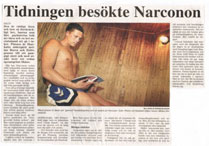
In Sweden, Narconon Eslov got itself added to the official list of service providers to which the Social Office could refer addicts. The police in Eslov have even been referring people who need drug recovery directly to the Narconon center and the local newspapers support the drug-free effort by featuring Narconon in their publications.
Narconon Eslov’s drug education lecturer found new supporters in his community. He was acknowledged for his effective work by Diabet`e Dialy Mory, a popular boxing coach in Sweden who works with 1,200 young people in one of the most violent districts. Thomas was also praised by Stefan Steiner, a long-time narcotics officer.
More support was received from Stig Cronberg, the Chief Doctor at a clinic in Malmo who said that Narconon was the best solution to the drug problem.
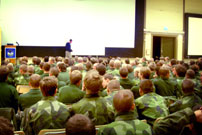
In Gothenburg, Sweden, drug education lecturer Alexander Breeze visited the Military High School of Sweden, where officer training is provided and then provided drug education lectures for more than 1,300 members of the Swedish Air Force.
Two well-known professional hockey players participated in a drug education program at a school in Ytterby with Narconon Gothenburg. The students wrote poems against drug use which they entered into a competition. The winners were rewarded with certificates signed by hockey players Per-johan Axelsson and Niclas Andersson.
In Norway, permission had been received from Svein Pedersen, a county Director, to send addicted Norwegians to Narconon Demark since there was no Narconon in Norway. An executive at the Norwegian rehab Floen asked Mr. Pedersen how she could improve the results at her drug rehab facility to which Mr. Pedersen replied that she should visit Narconon Denmark to see what they are doing. And so she did just that. The Executive Director of Narconon Denmark reciprocated with a visit to Floen to deliver drug education.
Southern Europe
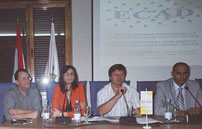
Narconon expanded its activities into Montenegro with attendance at the third conference of European Cities Against Drugs. Narconon Southern Europe president Ugo Ferrando was there to present the Narconon program to representatives of Montenegro, Croatia, Serbia, Bosnia, Herzegovina, Slovenia and Malta. More outreach into Montenegro was accomplished by delivering drug education lectures to the citizens.
Expansion and endorsements were happening all over Italy for Narconon. Narconon La Fenice worked on their plans to expand their facilities and the Police Chief in Alfiere began to refer drug addicts in jail to the Narconon center in his town.
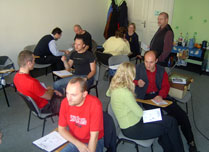
Now that Narconon has been in Italy for 23 years, it has nine drug education groups that have been delivering drug prevention classes in Milano, Pordenone, Cozenza, Torino, Padova, Lecce, Pescara, Bergamo and Sassari and other cities.
Narconon Italy’s reach even extended to Macedonia. On receipt of the Narconon Italy weekly newsletter, Borce Mircevski, who was working for the Drug Enforcement Department of the Skopje police, realized that this was the way to help people recover from or prevent drug problems. He learned how to deliver Narconon drug education lectures and in two months, he had delivered presentations to more than 5,000 Macedonian students. He soon realized that police work was not the solution so he resigned so he could open a Narconon center. On Easter Day, the first Balkan center was opened in Skopje.
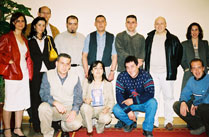
There are three Narconon centers in Spain, two in Seville and one in Madrid. They held their first reunion of Spanish graduates in April 2004 in Madrid. Graduates brought their families and talked about the success they achieved in life after graduating. One graduate became an educator and writes newspaper articles about the drug problem in Spain. And then went on to become a successful businesswoman.
Due to all the expansion and activity that has been taking place in the Narconon network in Spain, the Executive Director Juan Luis Campos began plans to move to a larger facility.
In fact, there were many more events and achievements in Europe than can be reported here. Narconon staff and graduates were very busy in 2004, spreading the work of the success of the Narconon drug rehabilitation and prevention program.